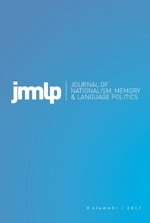A Semantic Analysis of the Notion of Consultative Democracy: Xieshang Minzhu (协商民主) in the Chinese Official Political Discourses
A Semantic Analysis of the Notion of Consultative Democracy: Xieshang Minzhu (协商民主) in the Chinese Official Political Discourses
Author(s): Li Rongxin, Zhou XiaofangSubject(s): Governance, Semantics, Politics and communication
Published by: Univerzita Karlova v Praze, Fakulta sociálních věd
Keywords: semantic analysis; Xieshang minzhu; Chinese language; indigenization; authoritarian rule
Summary/Abstract: Chinese politics are characterized by the complex issues of a large population and centralized political powers, which offers a distinct political model from the Western models. However, the last two decades have witnessed a sharp collision between Chinese and Western political thinking. In response, domestic authors have increasingly focused on the indigenization (bentuhua 本土化) of Chinese political theories and, therefore, defend the concept of politics with Chinese characteristics. In this article, the authors focus on the discourse of “deliberative democracy” within the Chinese language, namely, Xieshang minzhu 协商 民主. In the current literature, almost no scholarly discussions have explored the semantics of the notion of Xieshang minzhu within Chinese politics. This article engages with this issue, both as a subject and a methodology, to better understand the political language that has been used in the official discourses in China1 by 1) establishing a textual corpus by collecting relevant data into the Chinese and English groups through keywords; 2) conducting a statistical analysis based on the Word Cloud and Diagram analyses; and 3) using Word2Vec to calculate the relationship among other sub-keywords. The purpose of this contribution is to differentiate Xieshang minzhu as adopted by Chinese official discourses embedded in the logic of political reforms from the Western discourses. The semantic analysis presented here also serves as a methodology that systematically develops a conceptual model of xieshang, which further clarifies the misconceptions and errors in the existing literature. The authors also provide an outline of the polysemic notion of deliberative democracy, which not only exists within an authoritarian regime but is also present in other forms and other languages (such as Chinese). This serves to further maintain the legitimacy of the “socialist democracy with Chinese characteristics.”
Journal: Journal of Nationalism, Memory & Language Politics
- Issue Year: 14/2020
- Issue No: 01
- Page Range: 47-70
- Page Count: 24
- Language: English

